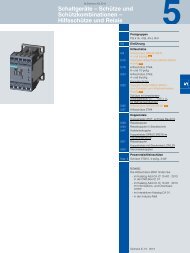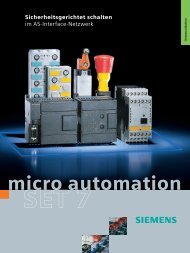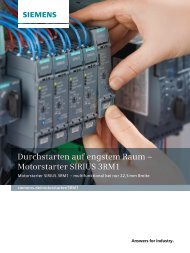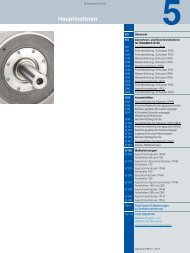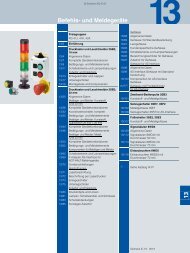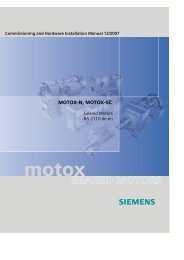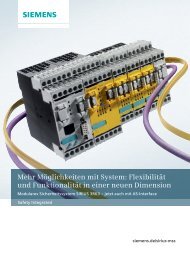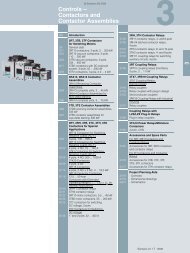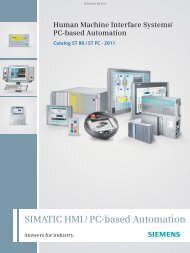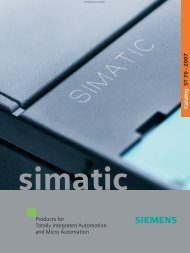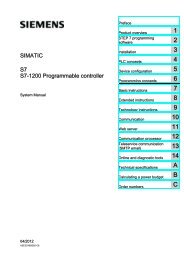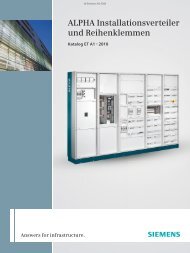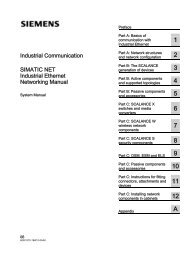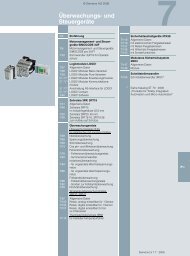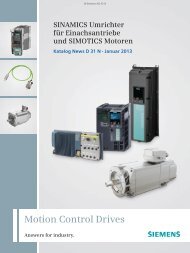User Manual 08/2003 Edition
User Manual 08/2003 Edition
User Manual 08/2003 Edition
Create successful ePaper yourself
Turn your PDF publications into a flip-book with our unique Google optimized e-Paper software.
4<br />
4 Communications via PROFIBUS DP 02.99<br />
4.3 Parameter area (PKW area)<br />
Transferring<br />
traversing blocks<br />
Rules for the<br />
task/response<br />
processing<br />
4-114<br />
For SIMODRIVE POSMO A the traversing blocks are saved in parameters<br />
which means that they can only be read and changed via the PKW<br />
mechanism.<br />
Reader’s note<br />
The parameters for the traversing blocks are described in Chapter<br />
5.3.2.<br />
When mapping the traversing blocks to the parameters, the parameter<br />
number defines the block components (position, velocity, etc.) and the<br />
sub–parameter number of the traversing block number.<br />
Example: P0<strong>08</strong>1.17 ––> position, parameter 81 with traversing block 17<br />
Addressing in the PKW mechanism:<br />
The parameter ID (PKE) addresses the block components.<br />
The sub–index (IND) addresses the traversing block number<br />
This means that a complete set can only be read or changed one after<br />
the other via the individual components.<br />
Additionally:<br />
1. Machine data is mapped to the parameters<br />
2. Additional parameters (e.g. P947, P953, etc.) are possible from the<br />
PROFIBUS Guidelines.<br />
The following rules apply for the task/response processing:<br />
1. A task or a response can always only be referred to one parameter.<br />
2. The master must repeat a task until it has received the appropriate<br />
response from the slave (clock cycle: 10 ms).<br />
3. The slave provides the response until the master has formulated a<br />
new task.<br />
4. The master recognize the response to a task which it issued:<br />
– by evaluating the response ID<br />
– by evaluating the parameter number (PNU)<br />
– if required, by evaluating the parameter index (IND)<br />
5. For response telegrams that contain parameter values, the slave,<br />
for this cyclic repeat process, always responds with the updated<br />
value.<br />
This involves all responses to the tasks ”request parameter value”<br />
and ”request parameter value (array)”.<br />
Siemens AG <strong>2003</strong> All rights reserved<br />
SIMODRIVE POSMO A <strong>User</strong> <strong>Manual</strong> (POS1) – <strong>08</strong>.03 <strong>Edition</strong>



